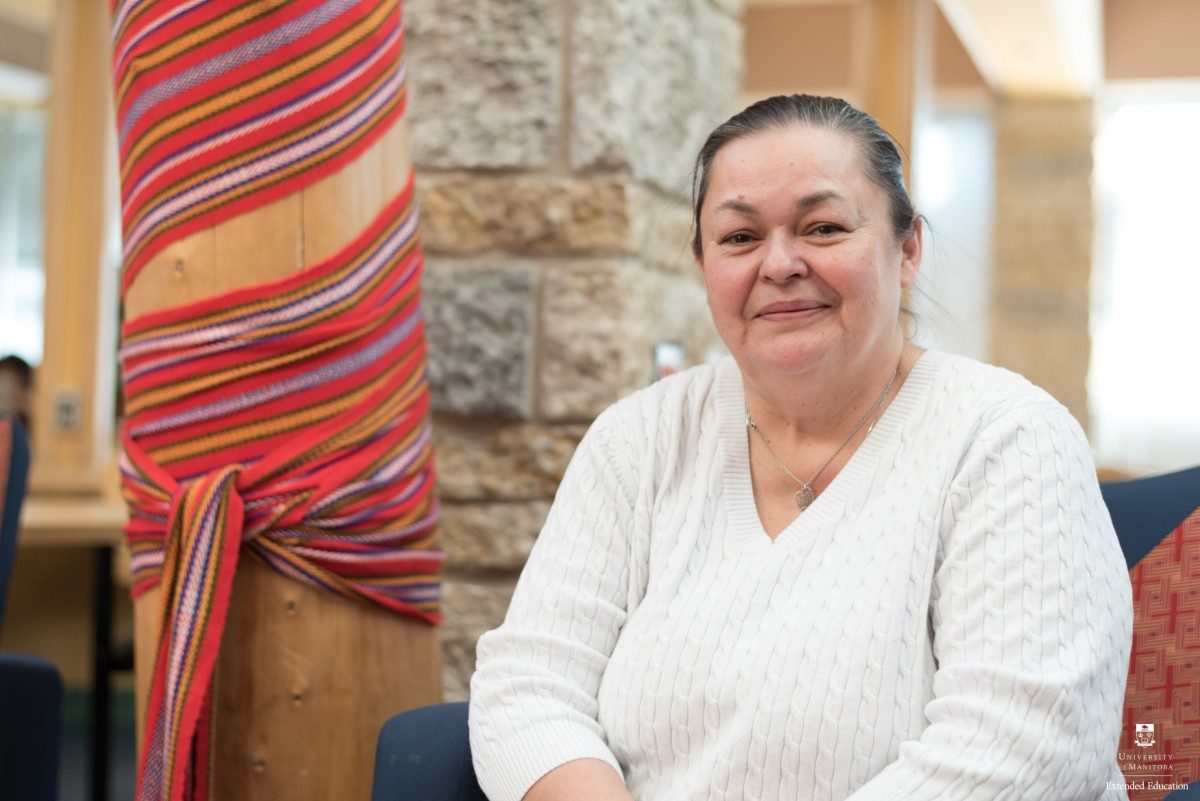
Victoria McIntosh, Access student and artist
Grandmother from Sagkeeng goes back to school
Turn your life around with the Access Program
One day, Victoria McIntosh decided to turn her life around. She was going to be a teacher.
At the University of Manitoba, with the Access Program, she found her supportive community. The Access Program at the University of Manitoba provides holistic support to Indigenous, newcomer, and other U of M students, empowering them on their path to success.
In 2017, McIntosh completed her Bachelor of Arts and she will complete her Bachelor of Education degree in 2019 with plans to become a high school teacher and pursue a graduate degree. There is little doubt that she will succeed in reaching her goals.
Do something about it
“I had abusive job situations. There was too much stress. It was very overwhelming. I was empty inside. I knew there had to be more than this. I thought that’s it. I am going to do something about it, says the Anishinaabe grandmother and Access program student from Sagkeeng First Nation.
First, she completed the Aboriginal Wellness Program at the U of M, and was named class valedictorian. But the abuse and residential school experiences of her past continued to follow her. “I needed to do something, on my healing journey. I decided I was going to be a high school teacher. Young people are going to hear my story. I am going to talk about it, how I remember seeing my grandmother on the other side of the river and knowing I could not go home. I am open to share, to the sharing circle, to feeling safe.”
The people at Access know her very well, she says. “Here. I can come in and feel safe. Trust issues are precious. I can talk and not be judged. They are very supportive. I used their bursary resources. They allowed me to have confidence in myself, to know I can do this. Someone is always here. I don’t feel alone.”
Overcome negative stereotypes
Although she knew she was smart, McIntosh always remembered how many people had labelled her with a negative stereotype. “They told me I was never going to amount to anything, and that I would die young with lots of kids. I had to get away from that, to cut the toxic out of my life and get healthy. It’s important to have Indigenous teachers, so kids can connect with someone who is like them and can understand them. When I share my story, students often tell me their relative tells the same stories. If you don’t know who you are, where are you going?”
She was born an artist, she says. “I remember when I started drawing. I had an old board and a carpenter’s pencil. I started drawing. I drew my family. I have been drawing since then, working in various mediums. I do pencil, pen and ink, storyboards, illustrations, fire painting. Anything new, I’ll try.”
Selling her artwork across Canada, she’s also a crafter, sewing and knitting socks, making things. She comes from a family of storytellers, and remembers the best times listening to her granny while making quilts.
“I could see patterns when I heard noises. I would get in the zone. So I started painting.”
Painting our storyMcIntosh has been commissioned to paint the glass panels on the balcony overlooking the main floor meeting space in Migizii Agamik (Bald Eagle Lodge), home to the Access Program. The project is called Painting Our Stories: Enhancing the Work and Study Environment of Migizii Agamik, and it’s funded by the U of M’s Office of Indigenous Engagement. Her concept is based on the creation story, the idea that we all start as a simple dot and then there are more and more dots. The concept is evolving and beginning to take shape. It is expected to be complete by May graduation.
“We hear lots of stories. The little manitous, the oracles, the little people come and help our imaginations. We go from dots to a cluster of energy with what we are learning.”
What people come into our lives to teach us no one can ever take away, she says. “What’s your story? It’s a universal journey. It starts when we are not born yet, and continues as we go along. You will see what I come up with.”
A rough start
McIntosh was the child of a single parent, and spent her early years with her grandmother. There was much poverty in her community. She remembers her grandmother building a porch and Indian Affairs taking it way. “It was the only time I ever really saw her looking defeated. I asked why? It was like we were always being punished.”
From the fall of 1963, she clearly remembers her first day of residential school and, the moment President Kennedy was shot. “I remember looking at the car on our black and white TV and knowing it was a big thing.”
She spent eight years in residential school, where they burned her things and gave her a new name and a new identity. There, she learned English. “I thought what a lot of hard work, and little academics.”
Then she went to public school in Red Lake. “Public school was a culture shock. I had never seen so many white kids in one place. It was so different. They were so loud and talkative.”
She left high school and an abusive situation at home to get away, and became a street kid in Thunder Bay. She married at 18 and had four daughters by the time she divorced at 22. “One day, I ran into a friend from high school and that was the person I married over 30 years ago. There was something about him.”
A new beginning
The couple lived in Calgary, and Red Lake, and finally came to Winnipeg. When she decided to go back to school, her husband encouraged her to do what she needed to do. “The people at Access were also so good and supportive.”
McIntosh encourages Indigenous residents of Manitoba to apply to the Access Program, and attend the University of Manitoba. U of M’s Access and Aboriginal Focus Programs are currently accepting applications for Fall 2019. Apply now.







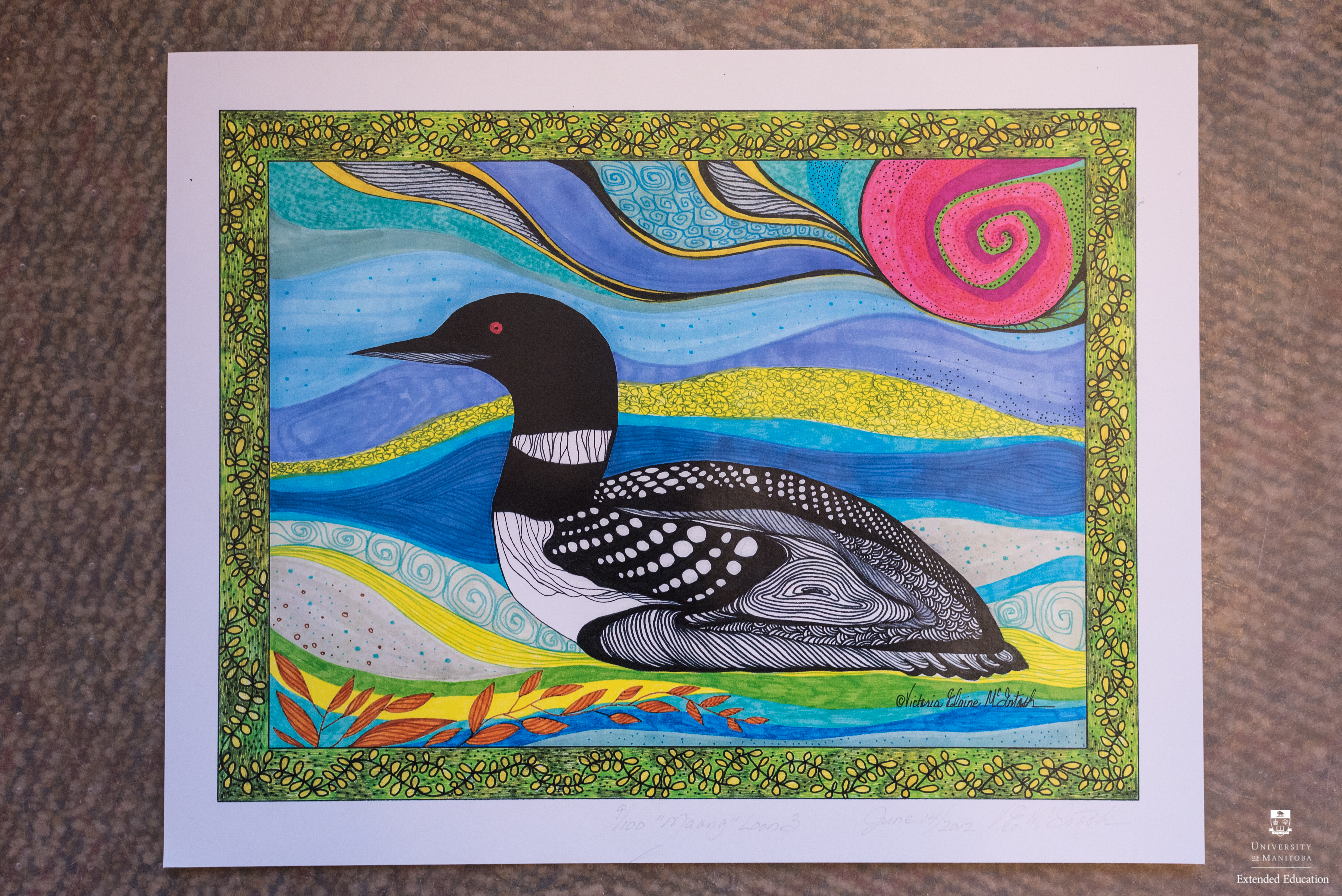
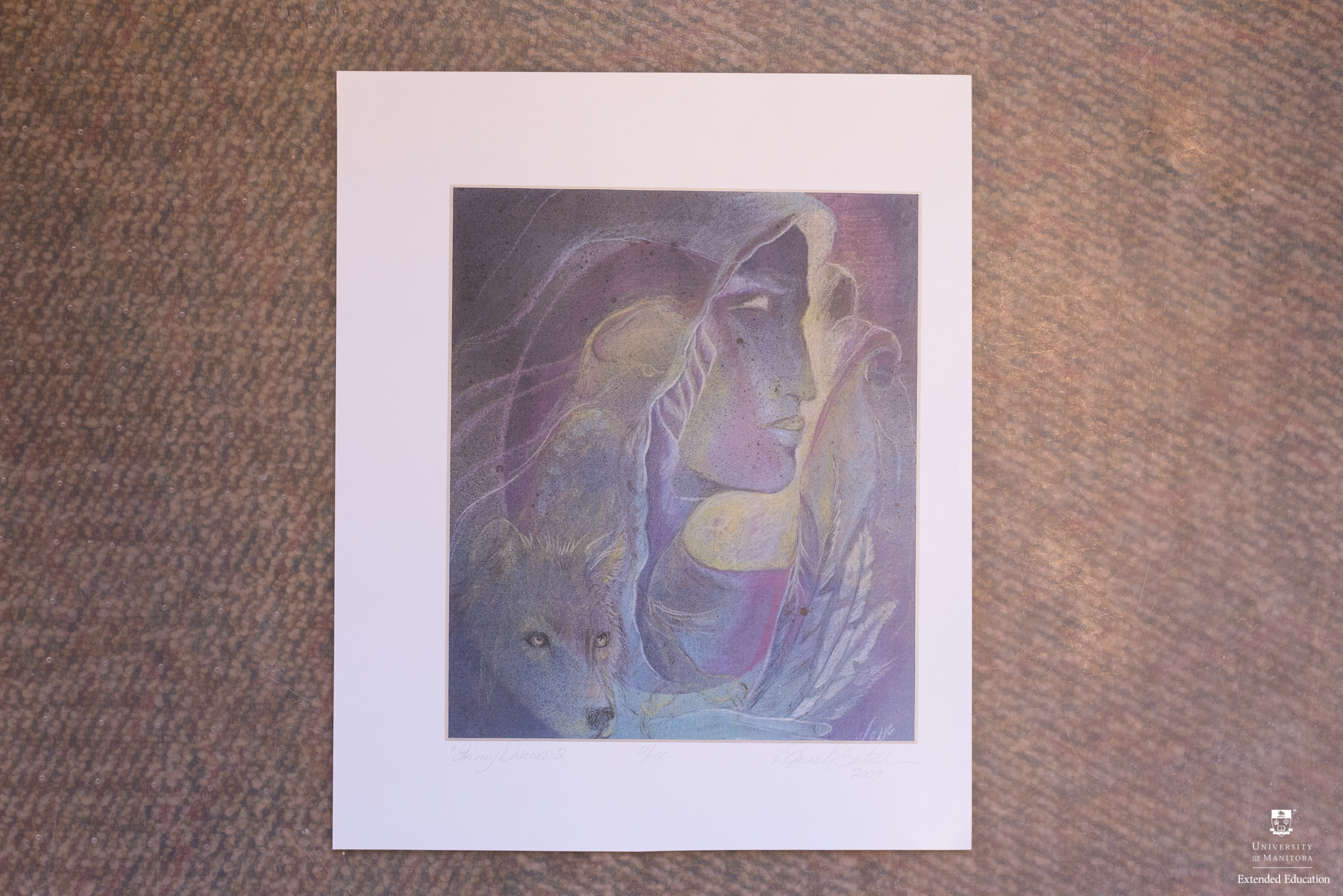
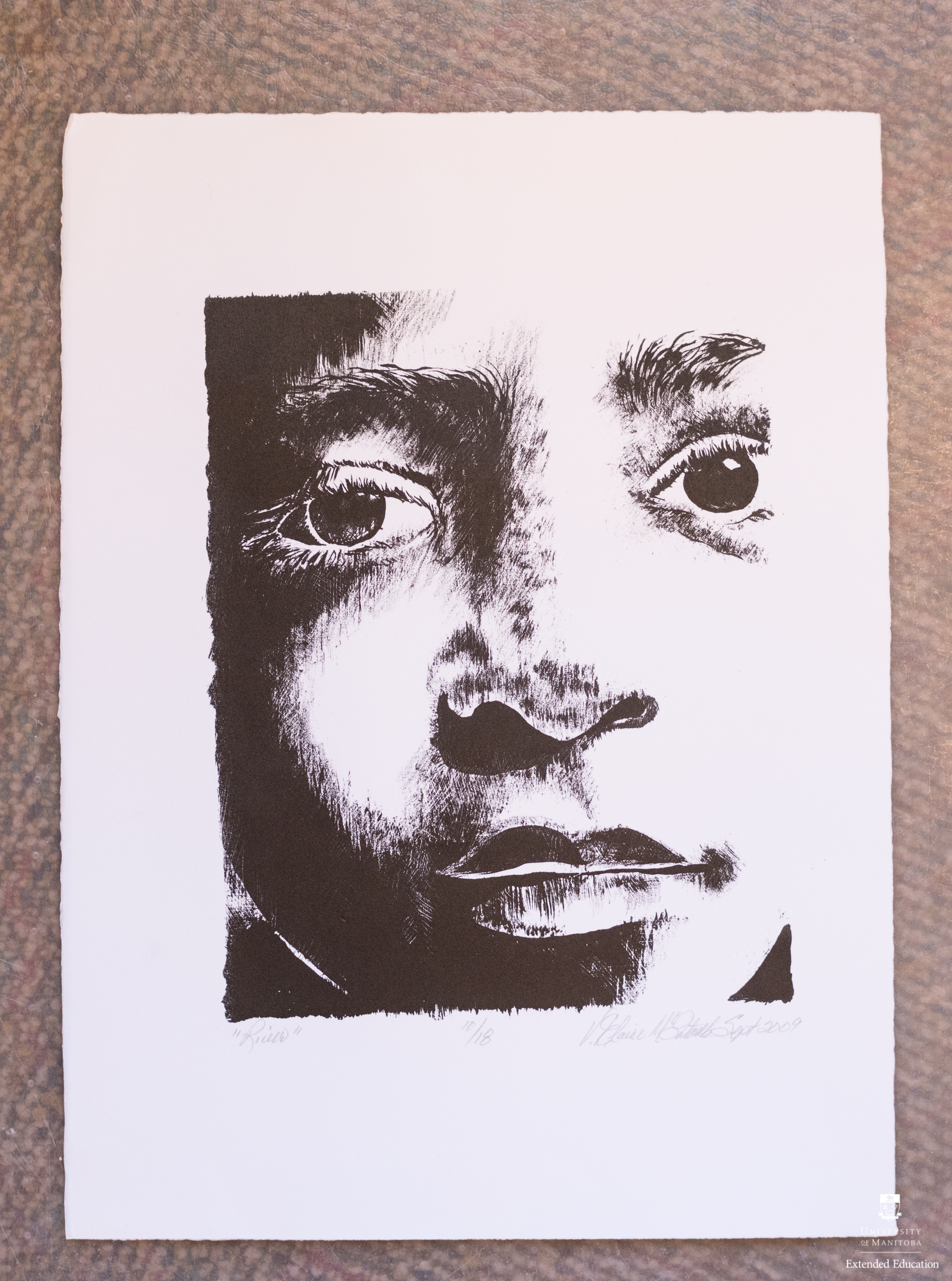
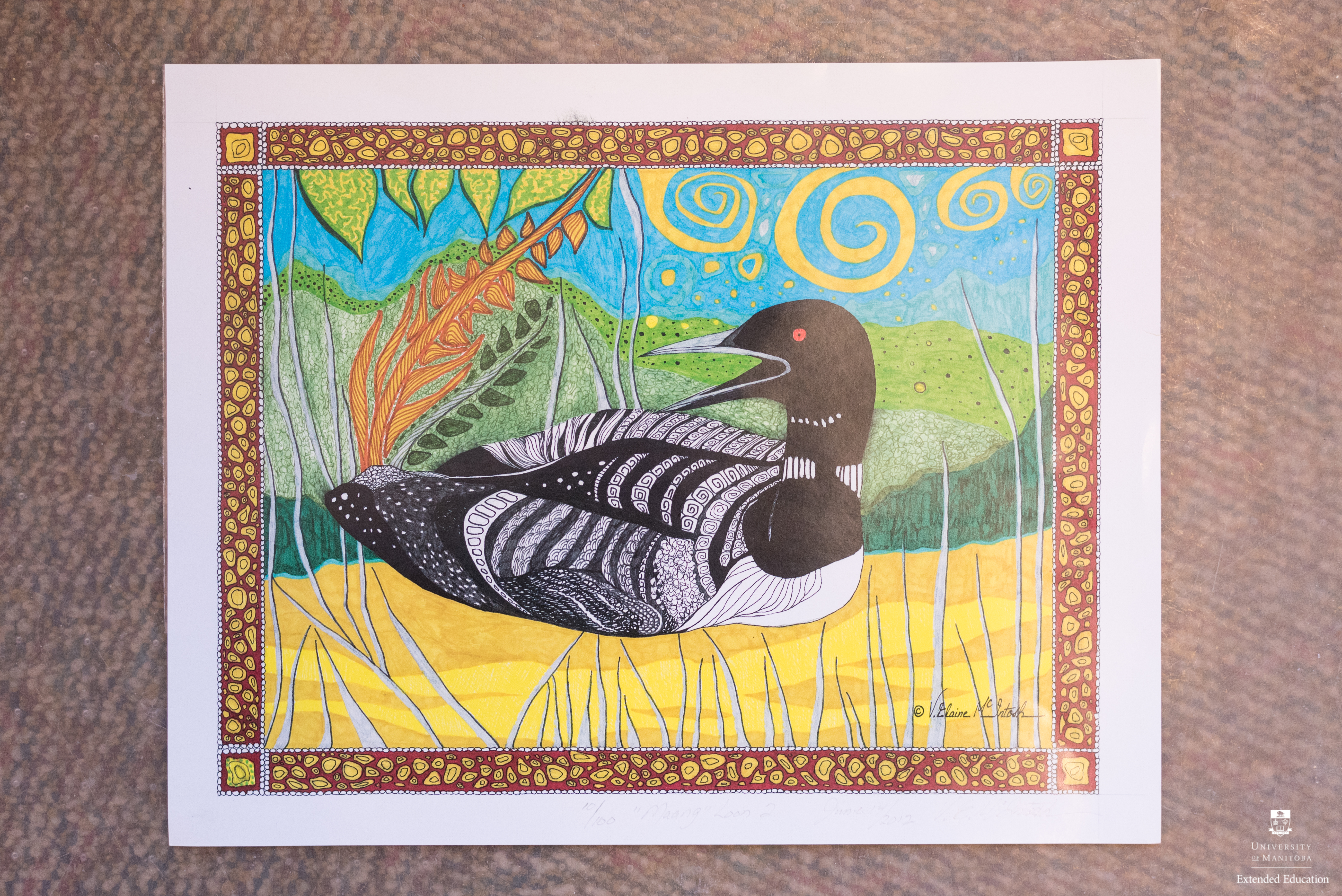
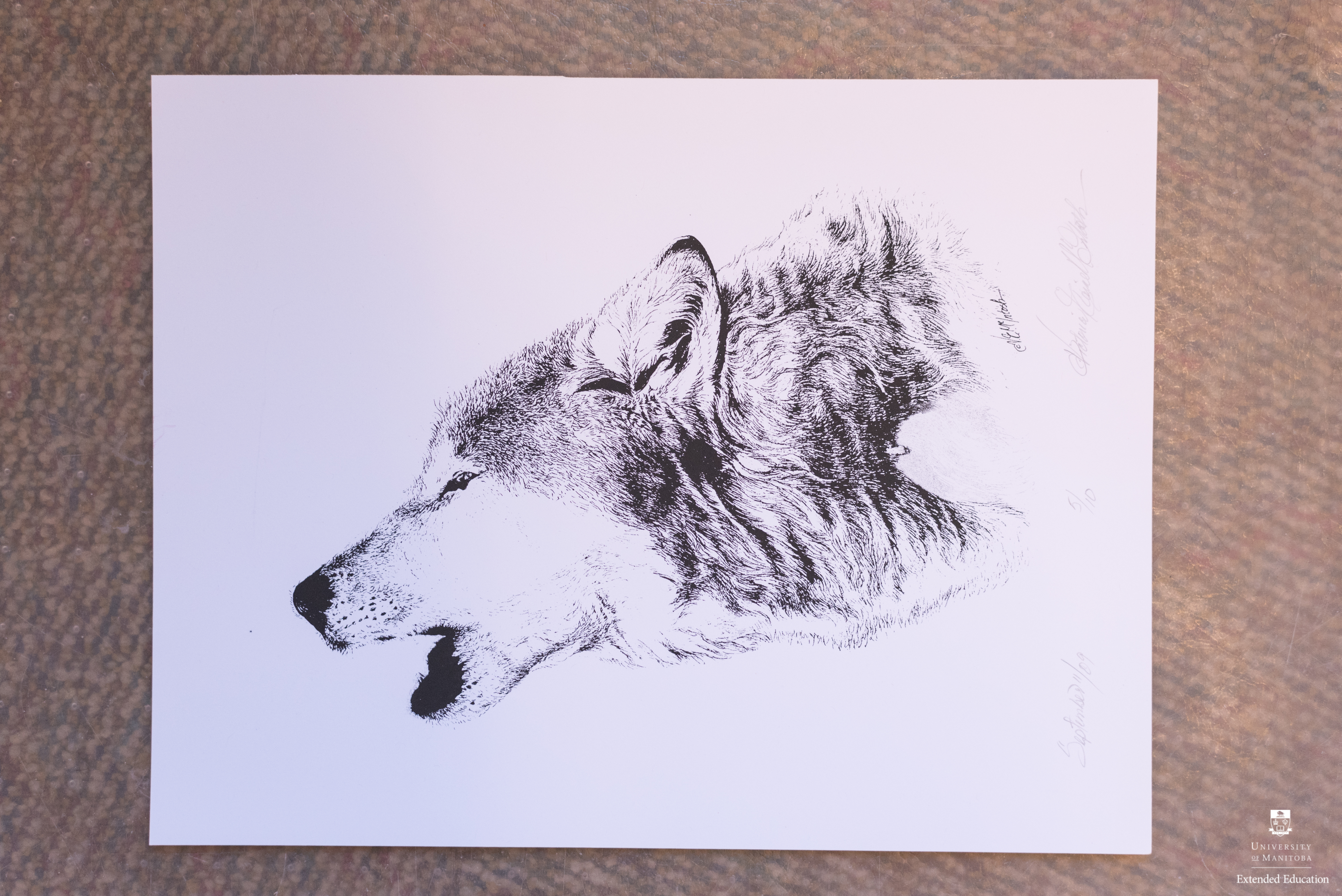

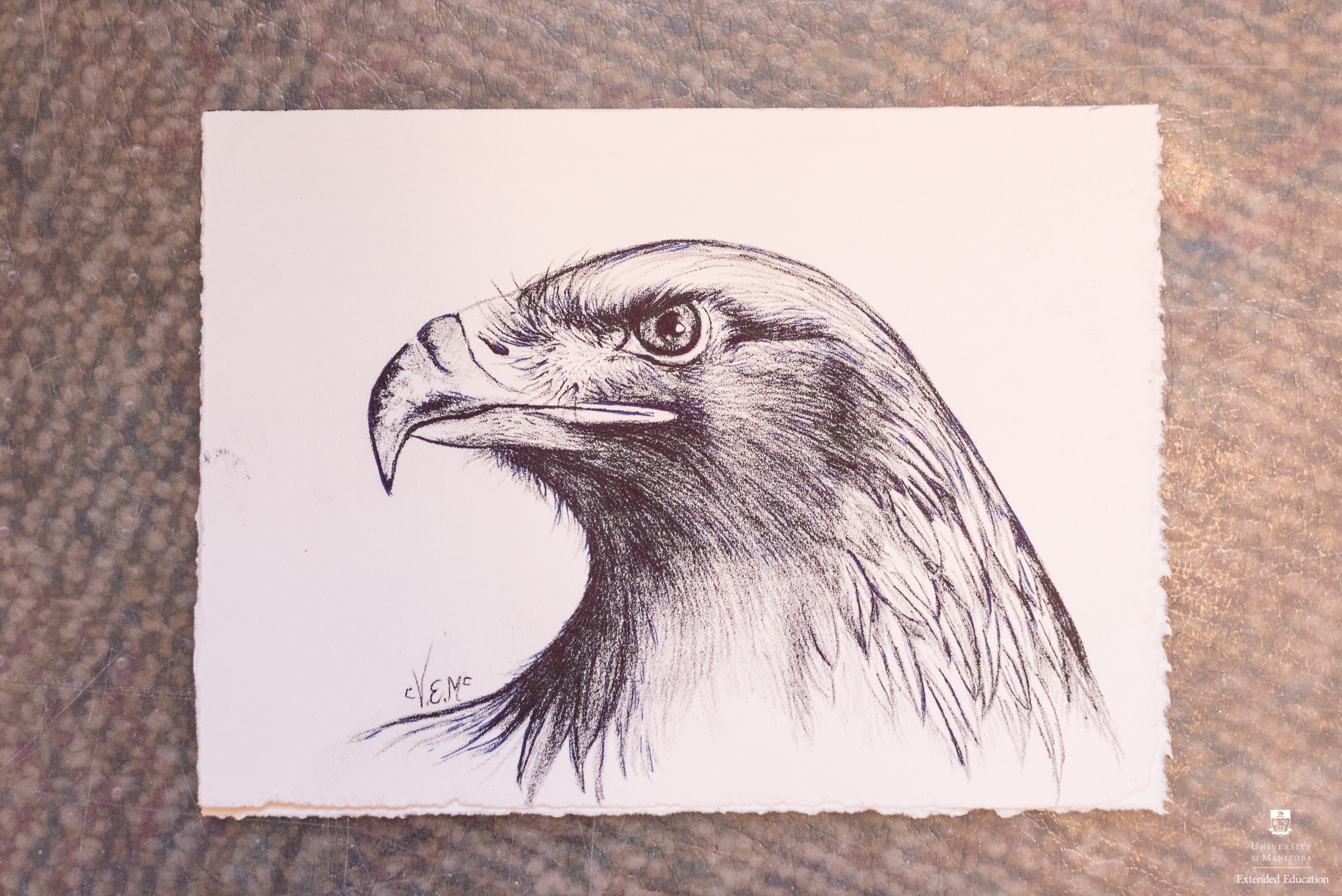
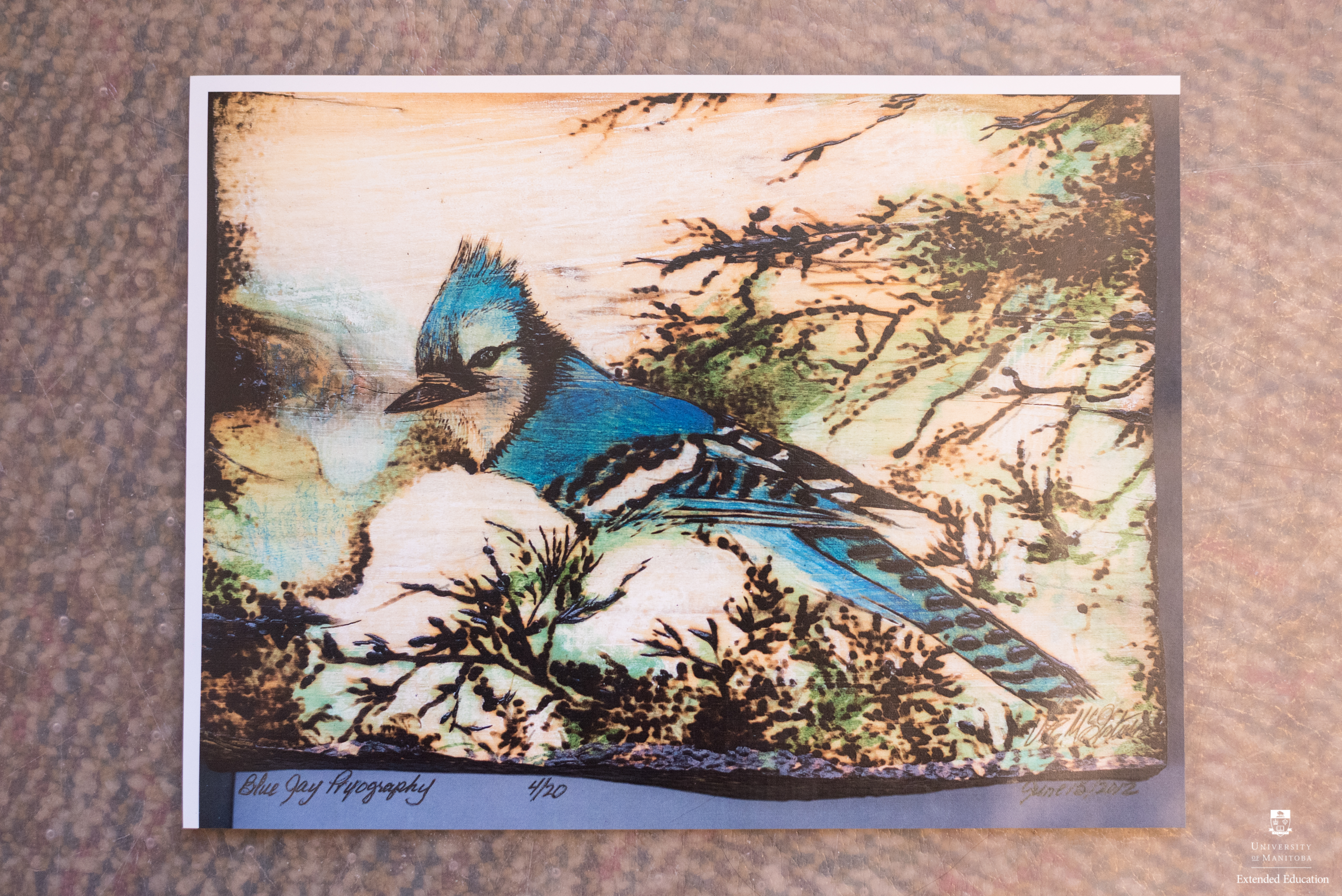
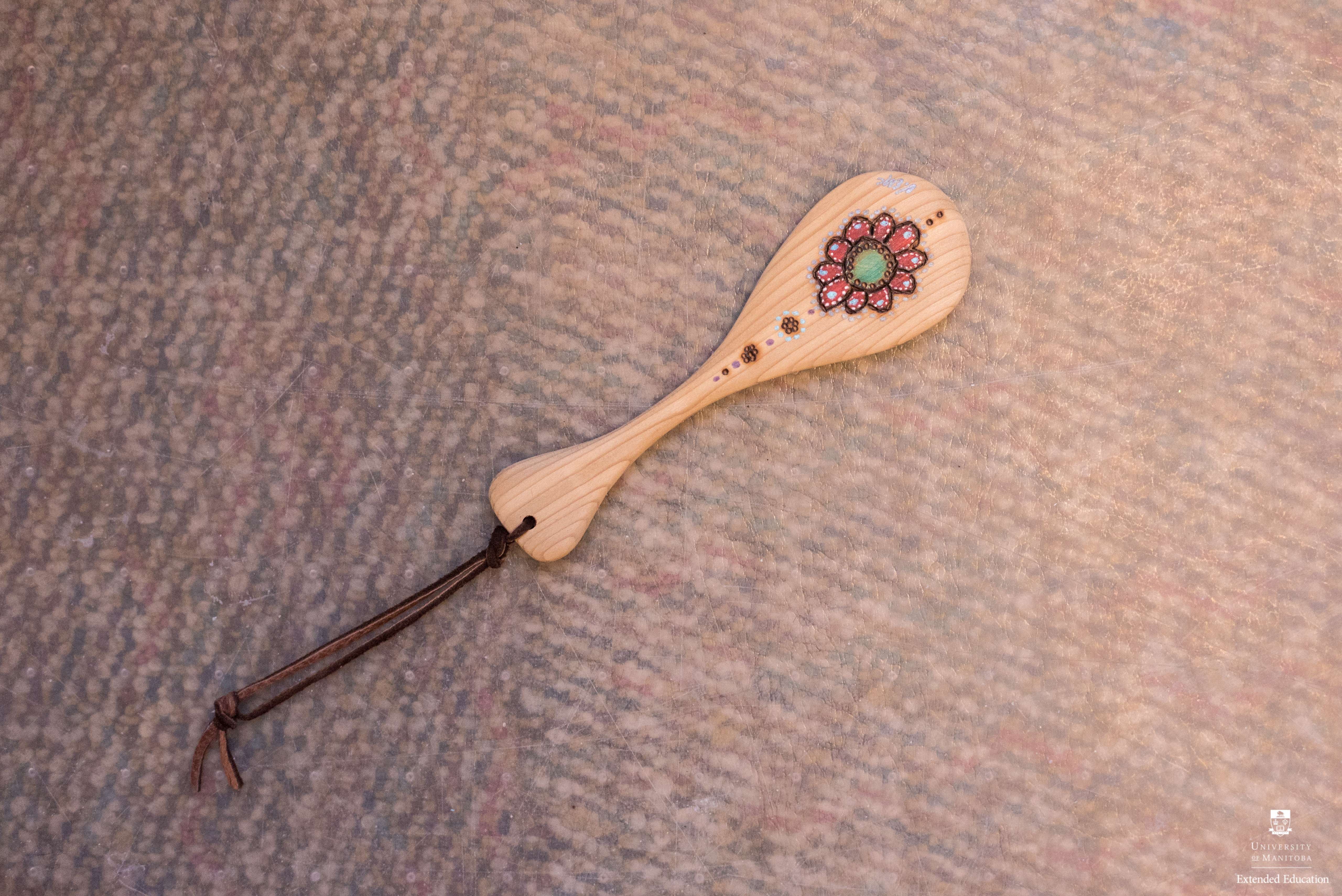
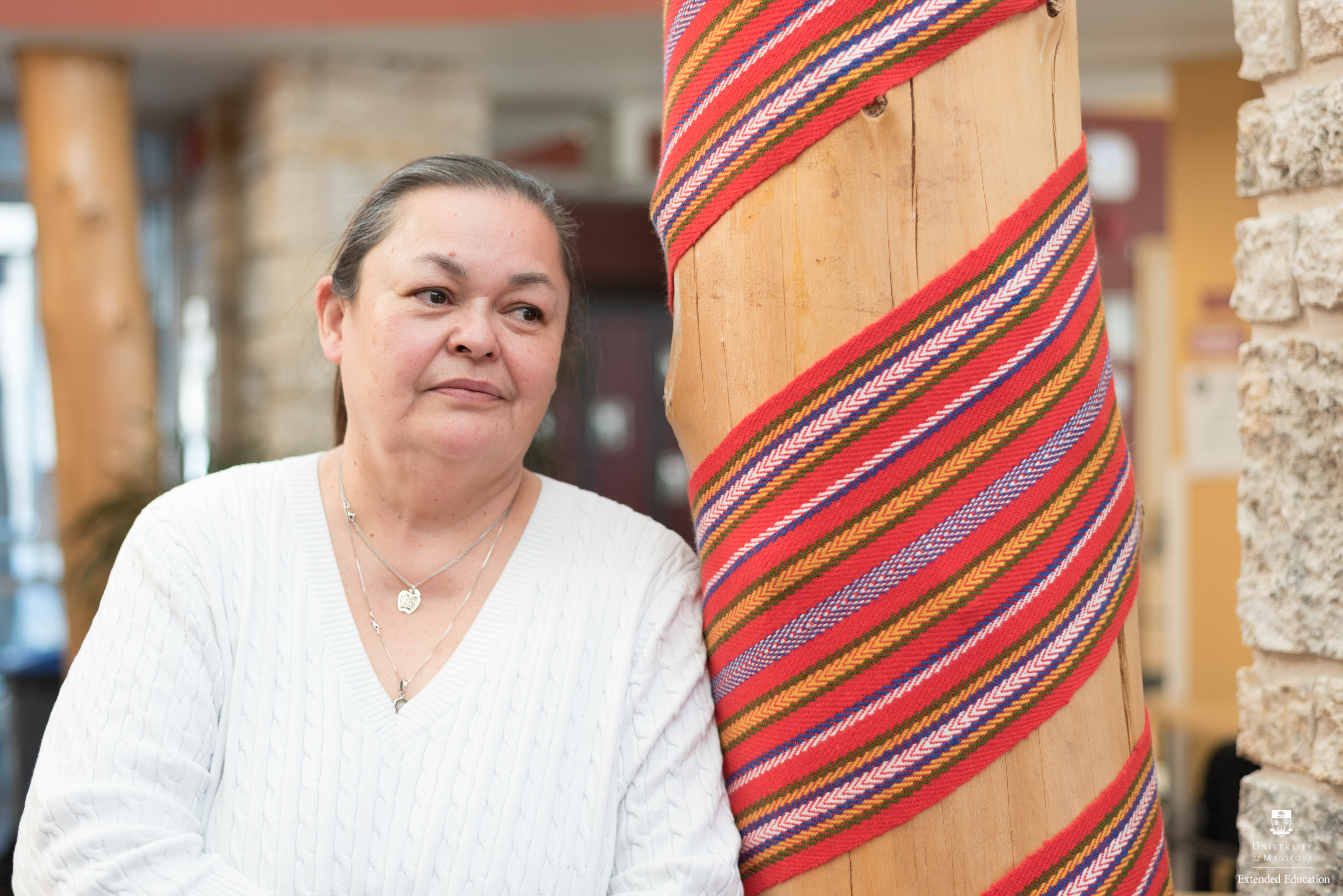
Wonderful work Victoria! You have so much to share with the world!
You are an amazing person, fantastic to have role models like you. Heartfelt thanks for sharing your story. Wishing you much success in your career.
What an amazing person you are! Thank you for having the courage to stand up and be heard.